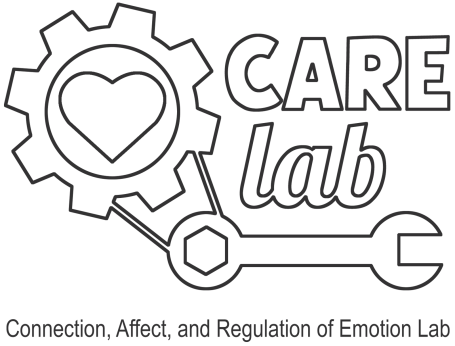Emotion Regulation and Self-Control
Relevant papers
Fujita, K., Orvell, A., & Kross, E. (2020). Smarter, not harder: A toolbox approach to enhancing self-control. Policy Insights from Behavioral and Brain Sciences. 7(2), 149-156. https://doi.org/10.1177/2372732220941242
Orvell, A., Vickers, B., Drake, B., Ayduk, O., Moser, J., Verduyn, P., & Kross, E. (2020). Does distanced self-talk facilitate emotion regulation across a range of emotionally intense experiences? Clinical Psychological Science. 9(1), 68-78. https://doi.org/10.1177/2167702620951539
Orvell, A., Ayduk, O., Moser, J., Gelman, S.A., & Kross, E. (2019). Linguistic shifts: A relatively effortless route to emotion regulation? Current Directions in Psychological Science, 28(6), 567-573. https://doi.org/10.1177/09637214198614
Orvell, A., & Kross, E. (2019). How self-talk promotes self-regulation: Implications for coping with emotional pain. In S. Rudert, R. Greifender, & K. Williams (Eds.) Current Directions in Ostracism, Social Exclusion and Rejection Research.
Lee, D., Orvell, A., Briskin, J., Shrapnell, T., Gelman, S., Ayduk, O., Ybarra, O., & Kross, E. (2019). When chatting about negative experiences helps—and when it hurts: Distinguishing adaptive vs. maladaptive social support in computer-mediated communication. Emotion. 20(3), 368–375. https://doi.org/10.1037/emo0000555
Orvell, A., Kross, E., & Gelman, S. A. (2019). Lessons learned: Young children’s use of generic-you to make meaning from negative experiences. Journal of Experimental Psychology: General, 148(1), 184 -191. https://doi.org/10.1037/xge0000445
Orvell, A., Kross, E., & Gelman, S.A. (2017). How “you” makes meaning. Science, 355(6331), 1299-1302. https://doi.org/10.1126/science.aaj2014
Kross, E., *Vickers, B, *Orvell, A., *Gainsburg, I., Jonides, J., Moser, J., & Ayduk, O. (2017) Third-person self-talk reduces Ebola worry and risk perception by enhancing rational thinking. Applied Psychology: Health and Well-being, 9(3), 387-409. https://doi.org/10.1111/aphw.12103
How do people use regulatory tools in daily life?
Relevant papers
Orvell, A.,*Bruehlman-Senecal, E., Vickers, B., Kross, E., & Ayduk, O. (2022). From laboratory to daily life: Self-distancing training buffers against daily rumination and depression over time. Psychology of Consciousness: Theory, Research, and Practice, advance online publication. 9(1), 68-68. http://dx.doi.org/10.1037/cns0000323
Fujita, K., Orvell, A., & Kross, E. (2020). Smarter, not harder: A toolbox approach to enhancing self-control. Policy Insights from Behavioral and Brain Sciences. 7(2), 149- 156. https://doi.org/10.1177/2372732220941242
Lee, D., Orvell, A., Briskin, J., Shrapnell, T., Gelman, S., Ayduk, O., Ybarra, O., & Kross, E. (2019). When chatting about negative experiences helps—and when it hurts: Distinguishing adaptive vs. maladaptive social support in computer-mediated communication. Emotion. 20(3), 368–375. https://doi.org/10.1037/emo0000555
Kross, E., *Vickers, B, *Orvell, A., *Gainsburg, I., Jonides, J., Moser, J., & Ayduk, O. (2017) Third-person self-talk reduces Ebola worry and risk perception by enhancing rational thinking. Applied Psychology: Health and Well-being, 9(3), 387-409. https://doi.org/10.1111/aphw.12103
How do subtle shifts in perspective shape the way we make sense of our social world, evaluate messages, and connect to other people?
Relevant papers
Orvell, A., Simmons, E., Umscheid, V., Elli, G., Gelman, S.A. (2025). From “me” to “we”: How perspective shifts in language can shape children’s judgments about kindness, caring, and inclusivity. Journal of Experimental Psychology: General
Niu, M., Gelman, S.A., Jurgens, D., Kross, E., Provost, E.M., Orvell, A. (2025). The persuasive role of generic-you in online interactions. Scientific Reports. 15(1), 1347.
Orvell, A., Gelman, S. A., & Kross, E. (2022). What “you” and “we” say about me: How small shifts in language reveal and empower fundamental shifts in perspective. Social and Personality Psychology Compass, 16(5), e12665. https://doi.org/10.1111/spc3.12665
Orvell, A., Elli, G., Umscheid, V., Simmons, E., Kross, E., & Gelman, S. A. (2022). Learning the rules of the game: The role of generic “you” and “we” in shaping children's interpretations of norms. Child Development, 00, 1–13. https://doi.org/10.1111/cdev.13846
Orvell, A., Gelman, S. A., & Kross, E. (2022). What “you” and “we” say about me: How small shifts in language reveal and empower fundamental shifts in perspective. Social and Personality Psychology Compass, 16(5), e12665. https://doi.org/10.1111/spc3.12665
*Salvador, C.E., *Orvell, A., Kross, E., Gelman, S.A. (2022). How Spanish speakers express norms using generic person markers. Scientific Reports 12(5016). https://doi.org/10.1038/s41598-022-08675-2
Orvell, A., Kross, E., Gelman, A. (2020) “You” speaks to me: Effects of generic-you in creating resonance between people and ideas. Proceedings of the National Academy of Sciences. 117(49), 31038-31045. https://doi.org/10.1073/pnas.2010939117
Orvell, A., Kross, E., Gelman, S.A. (2019). “You” and “I” in a foreign land: The persuasive force of generic-you. Journal of Experimental Social Psychology, 85, 103869. https://doi.org/10.1016/j.jesp.2019.103869
Orvell, A., Kross, E., & Gelman, S.A. (2018). That’s how you do it: Generic “you” expresses norms in early childhood. Journal of Experimental Child Psychology, 165, 183-195. https://doi.org/10.1016/j.jecp.2017.04.015
Orvell, A., Kross, E., & Gelman, S.A. (2017). How “you” makes meaning. Science, 355(6331), 1299-1302. https://doi.org/10.1126/science.aaj2014
© Copyright Ariana Orvell. All rights reserved.
We need your consent to load the translations
We use a third-party service to translate the website content that may collect data about your activity. Please review the details in the privacy policy and accept the service to view the translations.
